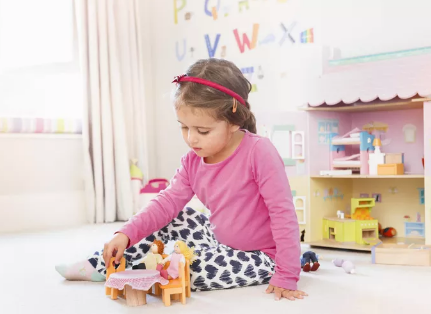Children who play alone learn many valuable lessons that will stay with them for the rest of their lives. For example, indie games can enhance self-reliance and creativity, especially since no one tells them what to play or take the lead. Playing alone can also help your child become well-rounded individuals who are able to adapt to a variety of environments, including being alone.
In addition, there is evidence that over-scheduling a child’s time (as opposed to playing independently) can put too much stress on children and deprive them of the benefits of play. It can even harm their health and well-being. 1 Here are eight more reasons why it is important for children to play alone.
Teach to Entertain Yourself
Children who play on their own learn to have fun on their own. They don’t expect others to bring them joy and entertainment. As children grow, they will understand that they will not be surrounded by someone at all times of their waking hours. They will become more confident and satisfied people.
Nurture Imagination
You may already feel that your child is imaginative. Wait for you to take a step back and let them play on their own! Alone time attracts superheroes, princesses, and other game scenes that you can’t see if they don’t engage in solitary playtime. They will think quickly and their creativity will shine.
Develop Social Independence
Playing alone fosters a strong sense of independence in your child. They don’t have to be with another person or group of people all the time. This social independence will help them feel comfortable in any situation.
Playing on your own doesn’t make your child shy away from other people. It prepares them for anything in the day – playing alone in the morning, playing with a playgroup in the afternoon, or spending the night with friends.

Encourage Calm
Playing outdoors can energize children, while playing with others allows them to have a lot of interaction. Playing on your own will give your child a sense of calm. But the time spent alone lifted their mood to a different level. Many children will play with toys quietly.
Teach Self-Soothing
Children want to know how we’ll be there for them when they need us, but learning Xi how to play on their own can also teach them self-soothing. They are always dependent on you, but they also learn how to look inward to solve problems. Your child begins to understand his emotions better and begins to communicate these feelings to you.
Provides a Sense of Security When Alone
You can’t interact with your child 24/7 as much as you want to. You have chores to do and meals to put on the table. When your child knows how to play on their own, they will be less dependent on you as their director of play. They also realize that not playing with them is not ignoring them. They will soon be looking forward to the time of the individual competition.
Get Kids Ready for School
For preschoolers, you may be the first playmate your child knows. When you step back and show them how to play on your own, they understand that you are not always physically with them.
Playing alone prepares children for school, as you can’t sit in the back of the classroom with them every day. They don’t feel abandoned because they’re Xi playing alone. They may also be more comfortable on new adventures without you presence.
Give You Some Breaks
Another benefit of teaching your child to play alone is that you can get much-needed breaks. Of course, this is not your main goal, but your alone time is also a great example for your children. Your child can see that you enjoy doing what you love alone, and that you don’t need someone else’s attention 100% of the time to be happy.

